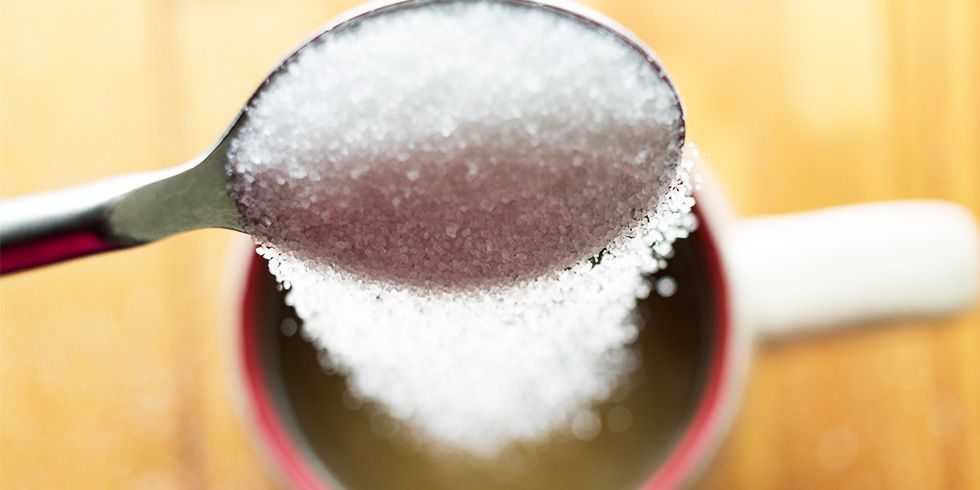
The keto diet boasts a ton of transformation stories—even celebs like Jenna Jameson, Al Roker, and Vanessa Hudgens have dabbled in it (and have the before-and-after photos to prove it).
But um, it’s still hard work—revamping your diet by almost totally cutting out carbs is a drastic change for your body (especially if you’re a pizza and pasta lover), so there’s got to be an easier way to get into ketosis (a.k.a., that state where your body burns fat for fuel instead of carbs), right? Maybe with special keto supplements?
Hold on, keto supplements? What are those?
Basically most “keto” supplements, which typically come in powder or capsule form, contain two specific ingredients, according to Wesley McWhorter, RD, chef and dietitian at UTHealth School of Public Health in Houston, Texas:
- Medium chain triglycerides (MCTs), which are predominantly saturated fats that break down in the liver
- Exogenous ketones or ketone salts (a.k.a. beta-hydroxybutyrate, or “ketones” made outside of the body in a lab)
Together, these reportedly work to increase the amount of fat in your body and kick you into ketosis (a.k.a. your fat-burning zone) faster, says McWhorter. Ketone supplements also allegedly block carbohydrates from being absorbed or metabolized, says McWhorter.
See all the celebs who have dabbled in the keto diet:
So…do keto supplements work?
Those claims are, well, just claims—”If you want to waste your money and potentially consume adulterated products with little or no research backing them, then sure, go right ahead and get those keto supplements,” says McWhorter. Yep.
And because there’s such limited peer-reviewed research to support using them, they might even be harmful to your health in the long run, says Michelle Milgrim, RD, a nutritionist at Northwell Health in New Hyde Park, New York.

“Only short-duration studies examining small samples have found that exogenous ketones can help achieve ketosis quicker and may decrease appetite,” she says. But there haven’t been any long-term studies looking at these outcomes over time, she adds.
Side effects from keto supplements are also a red flag. “You should be concerned about side effects,” says Maucere.” One study found that 13 of 19 participants who consumed ketone salts—a popular ingredient in keto supplements—suffered GI distress.”
Well, can keto supplements do anything at all?
While keto-specific supplements, like exogenous ketones, do temporarily elevate the level of ketones in the blood, saysAmanda Maucere, RD, a nutritionist at Lung Health Institute in Tampa, Florida, the overall impact on the body is not the same as getting there via your dietary choices.
“Think of it like taking a vitamin C supplement versus eating a cup of strawberries. The supplement will provide an adequate amount of vitamin C, but so will eating a cup of strawberries,” she says. Plus, with the cup of strawberries you’re also getting a dose of fiber, antioxidants and phytochemicals—other things that your body needs.
McWhorter agrees: “Simply swallowing a pill does not give us the same benefit as eating vegetables and whole plant-based food,” he says.
Are there any supplements I should be taking on the keto diet?

First: You should always check with your doctor before starting any new nutritional supplements (and even before starting a diet like keto)
Once you get the all-clear, it’s important to know that cutting carbs can make you a bit deficient in other vitamins and minerals—specifically chromium, B5 (pantothenic acid), B7 (biotin), and calcium. “People can become deficient in these vitamins and minerals because they are found in grains and, if you’re going keto, that usually means very low carbohydrate,” Scott Keatley, RD, of Keatley Medical Nutrition Therapy, previously told Women’s Health.
Electrolytes like sodium, potassium, and magnesium are also good additions to the keto diet—especially if you’re struggling to feel your best on it because of issues like the keto flu, which can cause dehydration or cramping. “Magnesium can be particularly helpful with constipation or leg cramps on your keto journey,” says Maucere—notice none of those suggestions were MCT oil or exogenous ketones.
The bottom line: Keto supplements are unnecessary and possibly even harmful. If you’re set on the keto diet, fill your plate with foods that contain lots of healthy fats, and round it out with non-starchy veggies—not exogenous ketone supplements.
Source: Read Full Article